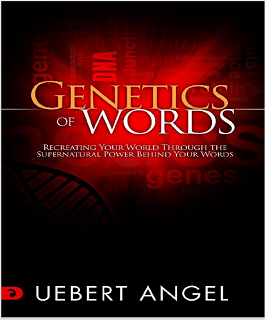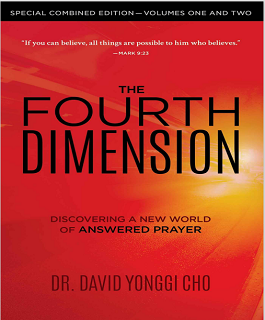The spiritual man
To read a book, Please sign into your account.
loginSpirit, Soul and Body
The ordinary concept of the constitution of human
beings is dualistic—soul and body. According to this
concept soul is the invisible inner spiritual part, while
body is the visible outer corporal part. Though there is
some truth to this, it is nevertheless inaccurate. Such an
opinion comes from fallen man, not from God; apart from God’s
revelation, no concept is dependable. That the body is man’s outward
sheath is undoubtedly correct, but the Bible never confuses spirit and
soul as though they are the same. Not only are they different in
terms; their very natures differ from each other. The Word of God
does not divide man into the two parts of soul and body. It treats
man, rather, as tripartite—spirit, soul and body. 1 Thessalonians 5.23
reads: “May the God of peace himself sanctify you wholly; and may
your spirit and soul and body be kept sound and blameless at the
coming of our Lord Jesus Christ.” This verse precisely shows that the
whole man is divided into three parts. The Apostle Paul refers here to
the complete sanctification of believers, “sanctify you wholly.”
According to the Apostle, how is a person wholly sanctified? By his
spirit and soul and body being kept. From this we can easily
understand that the whole person comprises these three parts. This
verse also makes a distinction between spirit and soul; otherwise,
Paul would have said simply “your soul.” Since God has
distinguished the human spirit from the human soul, we conclude
that man is composed of not two, but three, parts: spirit, soul and
body.
Is it a matter of any consequence to divide spirit and soul? It is an
issue of supreme importance for it affects tremendously the spiritual
life of a believer. How can a believer understand spiritual life if he
does not know what is the extent of the realm of the spirit? Without
such understanding how can he grow spiritually? To fail to
distinguish between spirit and soul is fatal to spiritual maturity.
26 The Spiritual Man
Christians often account what is soulical as spiritual, and thus they
remain in a soulish state and seek not what is really spiritual. How
can we escape loss if we confuse what God has divided?
Spiritual knowledge is very important to spiritual life. Let us add,
however, that it is equally as, if not more, important for a believer to
be humble and willing to accept the teaching of the Holy Spirit. If so,
the Holy Spirit will grant him the experience of the dividing of spirit
and soul, although he may not have too much knowledge concerning
this truth. On the one hand, the most ignorant believer, without the
slightest idea of the division of spirit and soul, may yet experience
such a dividing in real life. On the other hand, the most informed
believer, completely conversant with the truth concerning spirit and
soul, may nonetheless have no experience of it. Far better is that
person who may have both the knowledge and the experience. The
majority, however, lack such experience. Consequently, it is well
initially to lead these to know the different functions of spirit and
soul and then to encourage them to seek what is spiritual.
Other portions of the Scriptures make this same differentiation
between spirit and soul. “For the word of God is living and active,
sharper than any two-edged sword, piercing to the division of soul
and spirit, of joints and marrow, and discerning the thoughts and
intentions of the heart” (Heb. 4.12). The writer in this verse divides
man’s non-corporal elements into two parts, “soul and spirit.” The
corporal part is mentioned here as including the joints and marrow—
organs of motion and sensation. When the priest uses the sword to
cut and completely dissect the sacrifice, nothing inside can be
hidden. Even joint and marrow are separated. In like manner the
Lord Jesus uses the Word of God on His people to separate
thoroughly, to pierce even to the division of the spiritual, the
soulical, and the physical. And from this it follows that since soul
and spirit can be divided, they must be different in nature. It is thus
evident here that man is a composite of three parts.
Spirit, Soul and Body 27
The Creation of Man
“And Jehovah God formed man of dust from the ground, and
breathed into his nostrils the breath of life; and man became a living
soul” (Gen. 2.7 ASV). When God first created man He formed him
of dust from the ground, and then breathed “the breath of life” into
his nostrils. As soon as the breath of life, which became man’s spirit,
came into contact with man’s body, the soul was produced. Hence
the soul is the combination of man’s body and spirit. The Scriptures
therefore call man “a living soul.” The breath of life became man’s
spirit; that is, the principle of life within him. The Lord Jesus tells us
“it is the spirit that gives life” (John 6.63). This breath of life comes
from the Lord of Creation. However, we must not confuse man’s
spirit with God’s Holy Spirit. The latter differs from our human
spirit. Romans 8.16 demonstrates their difference by declaring that
“it is the Spirit himself bearing witness with our spirit that we are
children of God.” The original of the word “life” in “breath of life” is
chay and is in the plural. This may refer to the fact that the
inbreathing of God produced a twofold life, soulical and spiritual.
When the inbreathing of God entered man’s body it became the spirit
of man; but when the spirit reacted with the body the soul was
produced. This explains the source of our spiritual and soulical lives.
We must recognize, though, that this spirit is not God’s Own life, for
“the breath of the Almighty gives me life” (Job 33.4). It is not the
entrance of the untreated life of God into man, neither is it that life of
God which we receive at regeneration. What we receive at new birth
is God’s Own life as typified by the tree of life. But our human spirit,
though permanently existing, is void of “eternal life.”
“Formed man of dust from the ground” refers to man’s body;
“breathed into his nostrils the breath of life” refers to man’s spirit as
it came from God; and “man became a living soul” refers to man’s
soul when the body was quickened by the spirit and brought into
being a living and self-conscious man. A complete man is a trinity—
the composite of spirit, soul and body. According to Genesis 2.7,
28 The Spiritual Man
man was made up of only two independent elements, the corporeal
and the spiritual; but when God placed the spirit within the casing of
the earth, the soul was produced. The spirit of man touching the dead
body produced the soul. The body apart from the spirit was dead, but
with the spirit man was made alive. The organ thus animated was
called the soul.
“Man became a living soul” expresses not merely the fact that the
combination of spirit and body produced the soul; it also suggests
that spirit and body were completely merged in this soul. In other
words, soul and body were combined with the spirit, and spirit and
body were merged in the soul. Adam “in his unfallen state knew
nothing of these ceaseless strivings of spirit and flesh which are
matters of daily experience to us. There was a perfect blending of his
three natures into one and the soul as the uniting medium became the
cause of his individuality, of his existence as a distinct being.”
(Pember’s Earth’s Earliest Age) Man was designated a living soul,
for it was there that the spirit and body met and through which his
individuality was known. Perhaps we may use an imperfect
illustration: drop some dye into a cup of water. The dye and water
will blend into a third substance called ink. In like manner the two
independent elements of spirit and body combine to become living
soul. (The analogy fails in that the soul produced by the combining
of spirit and body becomes an independent, indissoluble element as
much as the spirit and body.)
God treated man’s soul as something unique. As the angels were
created as spirits, so man was created predominantly as a living soul.
Man not only had a body, a body with the breath of life; he became a
living soul as well. Thus we find later in the Scriptures that God
often referred to men as “souls.” Why? Because what the man is
depends on how his soul is. His soul represents him and expresses his
individuality. It is the organ of man’s free will, the organ in which
spirit and body are completely merged. If man’s soul wills to obey
God, it will allow the spirit to rule over the man as ordered by God.
Spirit, Soul and Body 29
The soul, if it chooses, also can suppress the spirit and take some
other delight as lord of the man. This trinity of spirit, soul and body
may be partially illustrated by a light bulb. Within the bulb, which
can represent the total man, there are electricity, light and wire. The
spirit is like the electricity, the soul the light, and body the wire.
Electricity is the cause of the light while light is the effect of
electricity. Wire is the material substance for carrying the electricity
as well as for manifesting the light. The combination of spirit and
body produces soul, that which is unique to man. As electricity,
carried by the wire, is expressed in light, so spirit acts upon the soul
and the soul, in turn, expresses itself through the body.
However, we must remember well that whereas the soul is the
meeting-point of the elements of our being in this present life, the
spirit will be the ruling power in our resurrection state. For the Bible
tells us that “it is sown a physical body, it is raised a spiritual body”
(1 Cor. 15.44). Yet here is a vital point: we who have been joined to
the resurrected Lord can even now have our spirit rule over the
whole being. We are not united to the first Adam who was made a
living soul but to the last Adam Who is a life-giving spirit (v.45).











